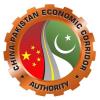Need for Discourse-Centered Approach in Contemporary Research on Maoism
The Naxalite movement, otherwise known as Maoist movement or Left Wing Extremism (LWE), celebrated its fiftieth anniversary in India in 2017. Despite tall claims made by successive governments, people in Maoist-infested regions continue to lead a miserable life. The metamorphic growth of violence and the inability of the state to come out with a well-thought-strategy have entirely paralyzed the rural administration in Maoist-infested regions.








